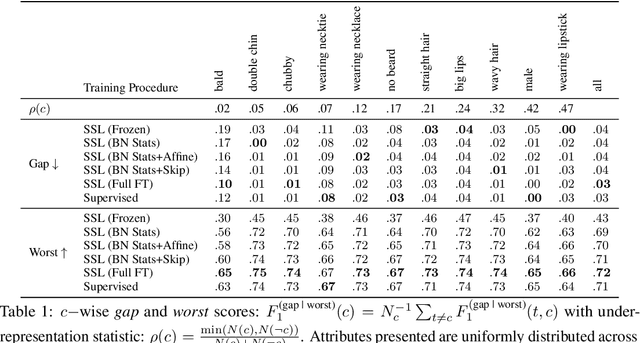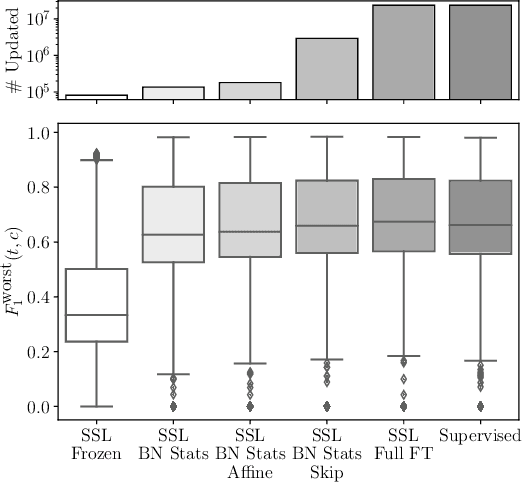Evaluating the fairness of fine-tuning strategies in self-supervised learning
Paper and Code
Oct 01, 2021

In this work we examine how fine-tuning impacts the fairness of contrastive Self-Supervised Learning (SSL) models. Our findings indicate that Batch Normalization (BN) statistics play a crucial role, and that updating only the BN statistics of a pre-trained SSL backbone improves its downstream fairness (36% worst subgroup, 25% mean subgroup gap). This procedure is competitive with supervised learning, while taking 4.4x less time to train and requiring only 0.35% as many parameters to be updated. Finally, inspired by recent work in supervised learning, we find that updating BN statistics and training residual skip connections (12.3% of the parameters) achieves parity with a fully fine-tuned model, while taking 1.33x less time to train.
* Accepted to BayLearn 2021
 Add to Chrome
Add to Chrome Add to Firefox
Add to Firefox Add to Edge
Add to Edge